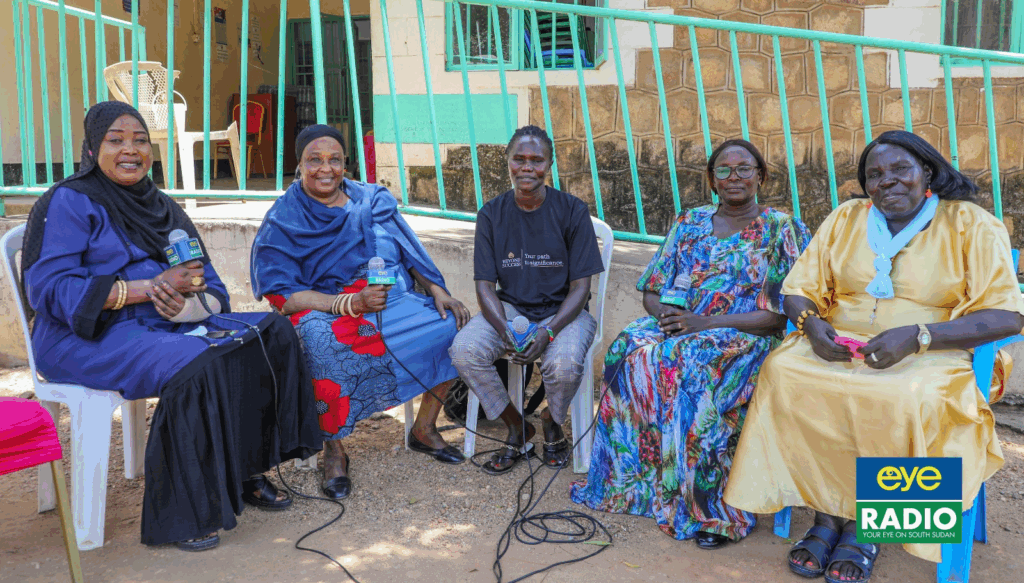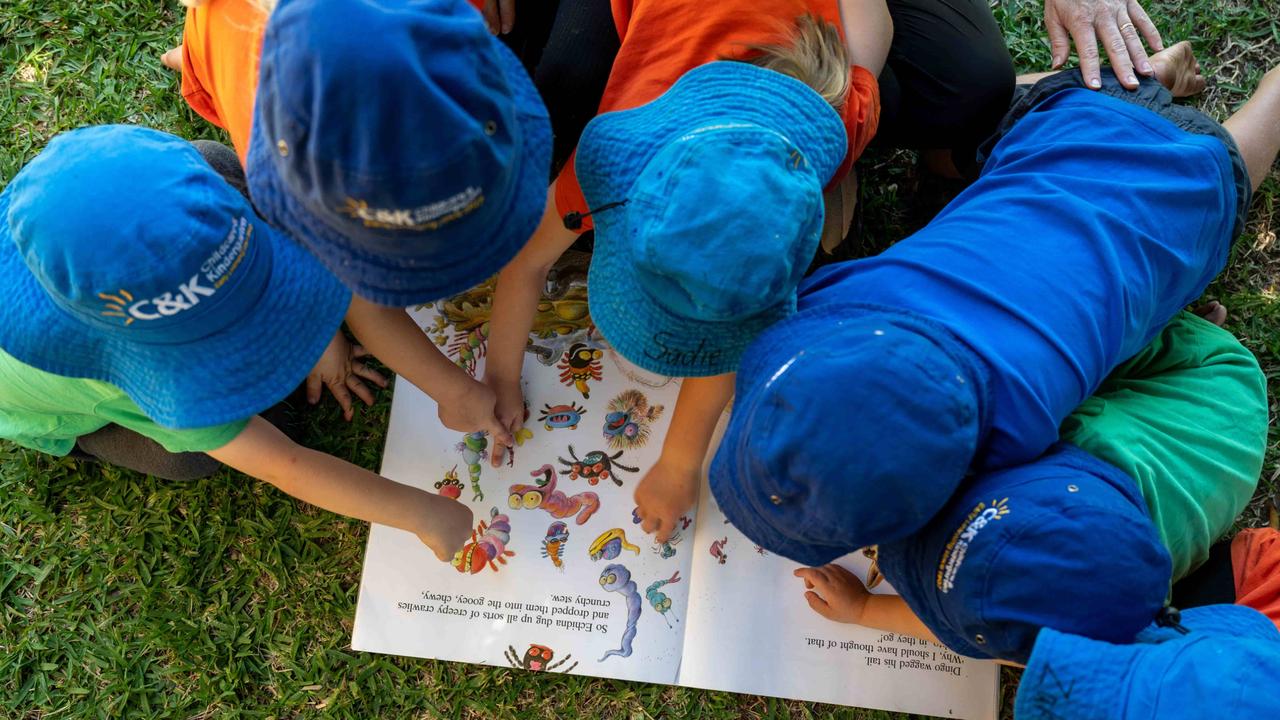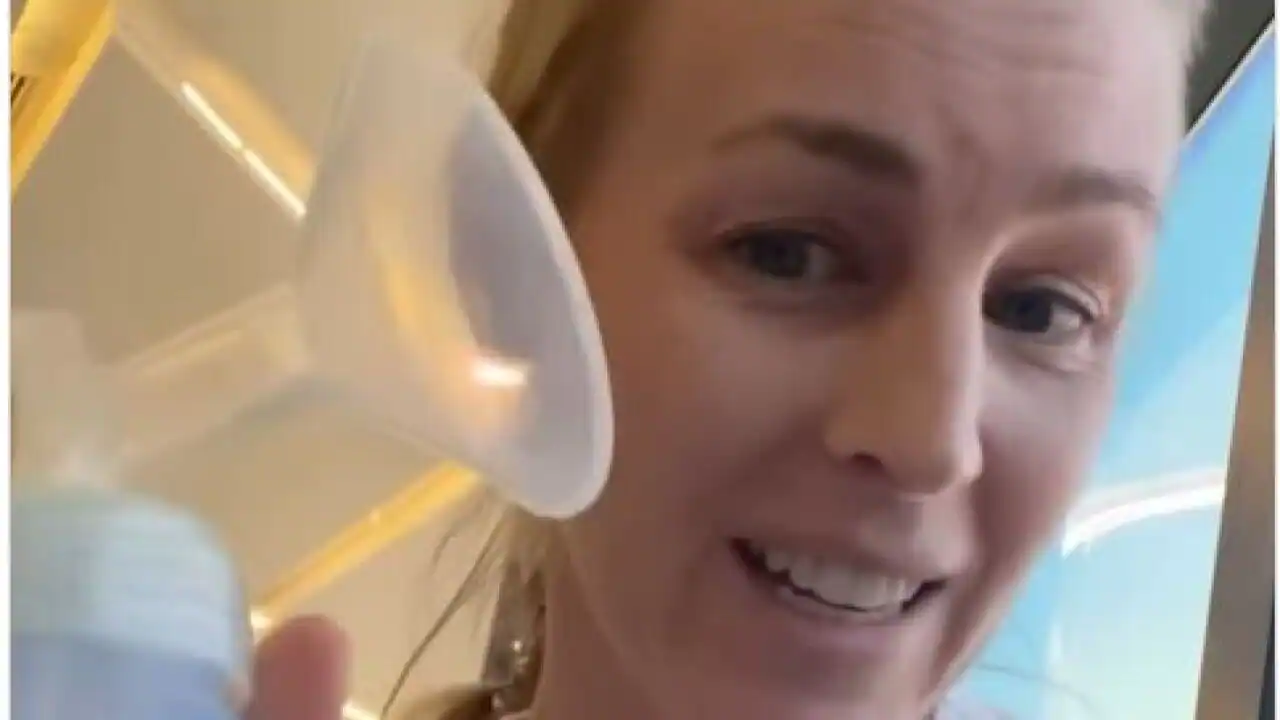CES Women’s Union urges govt to fulfil funding pledge, pleads for First Lady’s intervention
By Koang Chang
Copyright eyeradio

Central Equatoria State (CES) Women’s Union leaders during a discussion with Eye Radio on Sept. 17, 2025. From left to right: Arafa Juma Suleiman, Secretary of the women union council; Zeinab Osman, member of the South Sudanese Women Entrepreneur Association; Grace Meling Samuel; Sisilia Laku Wanii, Acting Chairperson of the Women Union; and Veronica Juan Modi, Chairperson and spokesperson of the women union council – credit: Eye Radio/Moses Awan
JUBA, SOUTH SUDAN (Eye Radio) — For women across South Sudan, the day-to-day existence is a tireless struggle. From sunrise to sunset, they carry the weight of their families on their shoulders, laboring to ensure their children have something to eat at the end of the day.
Despite their immense resilience, a collective cry for help is now rising from the Central Equatoria Women’s Union, pleading for support from the government, NGOs, and the wider community.
Veronica Juan Laku, the Chairperson and spokesperson for the women’s council, spoke with a clear and urgent voice, emphasizing the crucial need for support, particularly for the elderly women who have been left behind.
But her most heartfelt plea was a direct appeal to the nation’s First Lady, Mama Mary Ayen Mayardit.
“I’m calling upon the Central Equatoria state women leaders in the government to open ways for us to our first lady and Mother of the Republic of South Sudan,” Veronica stated in an exclusive interview with Eye Radio.
“We need our First Lady to come down to us. We want the mother of South Sudan to come down to us so she can listen to our hardships and we can tell her about our challenges in the different counties of South Sudan.”
The demand for a visit, she says, is not a luxury but a necessity, a way for their voices to be heard directly by the highest authority.
“We need her to visit us at least twice a year,” Veronica added, “so we can inform her about the challenges women face at Bomas and payams.”
This sentiment was echoed by other women leaders, including Sisilia Laku, Zeinab Osman, Arafa Juma, and Grace Meling.
They pointed to the countless women who fill the nation’s markets and streets, tirelessly selling water, tea, and peanuts—doing “small small businesses” to keep their households afloat.
The burden, they stress, is too great to be shouldered by women alone.
The conversation quickly turned to the long-promised Women Enterprise Fund, first announced in 2018 but yet to be introduced in parliament.
“The government needs to help us as women,” one of the leaders urged. “If this fund comes out, it will not only help these women alone but their children as well, who are also children of South Sudan.”
The leaders reminded the government that women played a vital role during the liberation, supporting their men and looking after the children in the absence of a stable country.
Now that freedom has been won, they argue, it’s time for women to be remembered and for a dedicated budget to be allocated to them so they can “stand firm in their country.”
A key mandate of the Central Equatoria Women’s Union is to empower women through awareness, education, and strengthening their economic and social standing.
The call for support is not about charity but about enabling women to build a better future for their families and for South Sudan.
They want their strength and contributions to be recognized and supported, not left to struggle in the shadows.



